Marie Matusz
Stages of Recovery
Works
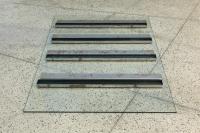
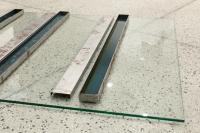
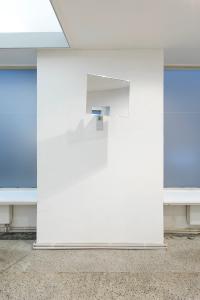
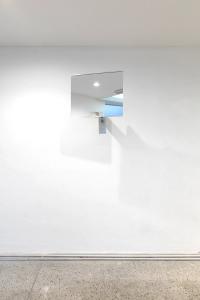
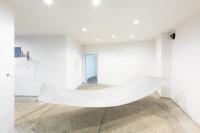
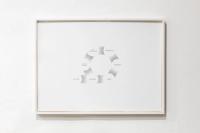
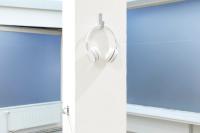

Installation Views
Press Release
Below is a Five-Step Process, known as the Stages of Change. It is constructed by ProChange, a company who specializes in products for behavioural systems. As given by the name of its progenitor, the below text has changed, become skewed, told at a slant.
1.) Precontemplation (Not Ready)
“in times of trauma and crisis, a door opens where facts and apparitions mix”
Let’s call this first stage, our ground, a place of endarkened belief, as opposed to enlightened. Our ability to see is cut off from the start; we mix ideas and facts and theories about what will happen, all myths to the reality, into multiple vials of indeterminacy, overflowing with each breath we take.
2.) Contemplation (Getting Ready)
Bards, mana, a spreadsheet that tells us our past and how much energy remains.
Storytelling: what is it today? Let’s call it Angelfire. The ability to form histories and images through words has been as recurrent in societies as has been the ability to administrate those histories and images into neat little categories, into genre: a painting is a painting is a painting is an economy is a word is an infrastructure to the homes of the directionless. We realise this is still an endarkened place, but also that every image is pret-a-porter. You can reach it, can’t you?
3.) Preparation (Ready)
- Sleep, This Heat - Deceit, https://www.youtube.com/watch?v=h_P_5OTEAeM
Once we catch onto this story being told, it does dwindle the spirit so, ya? A call to rest, perhaps, to relapse and lay down, or perhaps we are ignited. While both are deceitful promises, in the event of choosing between the two, a new plane appears that at least grants you the wisdom of something higher.
4.) Action
Let’s call this plane Sophia. Sure, Saint Sophia was the patron saint of wisdom, but what does it mean when Saudi Arabia grants citizenship to such robotic wisdom. Amongst the spreadsheet, amongst the robot, amongst the genius of our dreams, is our inability to perform a relative action—cynics may call this our lack of accountability, Silicon Valley may call it disruption. Whichever it may be called, at least seeing the possibility of wisdom is a comfort that should not be taken lightly, like breathing in this economy.
5.) Maintenance
ProChange draws this graph in an elegant upswing, as if each step is placed on one of Ruskin’s abstract lines given from nature and as if this most beautiful line feeds into us the promise of eventual success or transcendence. But, each annotation is purely a copy of the belief in change, and with enough inertia in the upswing you end up at the level of maintenance. Just as Ruskin wrote on the ornamental effects and architectures of Venice, Alan Greenspan, former chairman of the Federal Reserve and one of the key proponents in unregulated market expansion, mused on his honeymoon to Venice about the costs of maintaining such a city. At the end of our history, we arrive at maintenance, of sweeping up the dust and the ash that attempt to foreclose on our dreams.
Maintenance—what is perceived as the top point of success—echoes in its plateau the origin of Precontemplation. Just as Preparation allowed for the decision into relapse or rest, Maintenance necessitates such relapse, but into a new plane, beginning the Precontemplation all over again. But, what has changed on this new plane is the possibility of being able to jump directly into action while always remaining in a precontemplative state, capable of choosing the myth that is most real.






